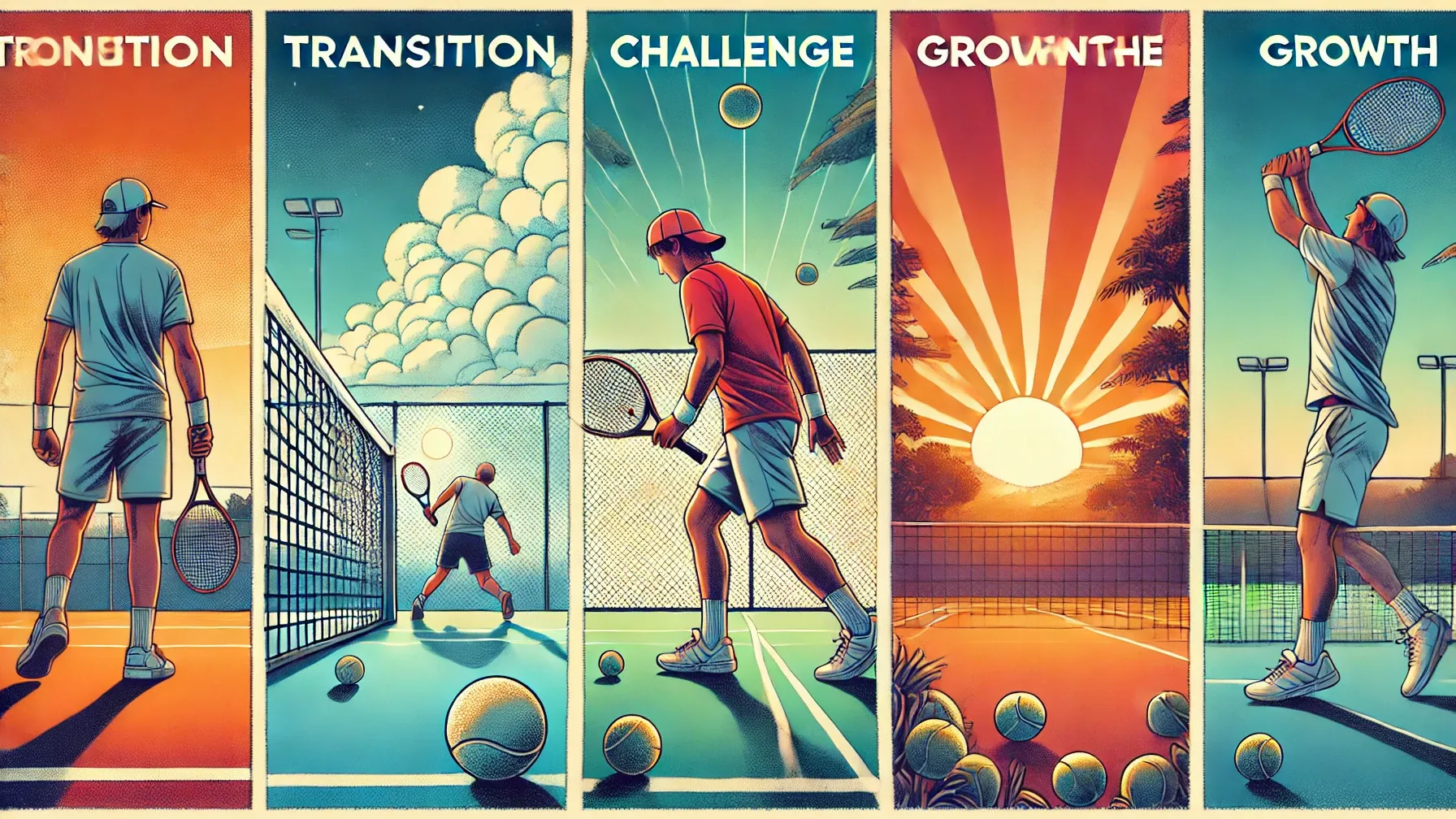
Breaking Through: How Coaching Supports Your Tennis Journey in Key Moments
Nov 28, 2024When Do You Need a Coach the Most?
Tennis is more than just a game; it’s a journey filled with transitions, challenges, and moments of growth. Whether you’re an aspiring player or an experienced competitor, the right guidance at the right time can make all the difference. So, when do you need a coach the most? Let’s explore three critical moments where coaching becomes essential.
1. During Transitions
Transitions are pivotal in a player’s journey. They often come with uncertainty, new expectations, and the need to adapt.
-
Starting a new phase: Imagine moving from recreational tennis to competitive play. Suddenly, the stakes are higher, the pressure more intense, and the need for strategy becomes clear. A coach can provide the roadmap to navigate these changes.
-
Adjusting to a new environment: Whether it’s transitioning to college tennis, joining a new training academy, or returning from injury, these shifts require mental and physical adaptation. Coaching offers clarity and support to stay on track.
Example: One of my players recently transitioned to college tennis. Together, we focused on building routines to manage their new schedule, ensuring they had the mental and physical tools to excel on and off the court.
2. When Facing Challenges
Every athlete encounters moments where progress feels stalled, pressure mounts, or setbacks threaten confidence.
-
Breaking through plateaus: Progress isn’t always linear. A coach helps identify hidden barriers and creates strategies to break through, whether it’s refining technique, improving shot selection, or mastering focus.
-
Managing pressure: High-stakes matches can bring out the best—or the worst—in players. Coaching equips athletes with mental tools like visualization, breathing techniques, and rituals to stay calm and perform at their peak.
-
Overcoming setbacks: Losing a match, dealing with injuries, or struggling in practice can feel discouraging. A coach provides perspective and actionable steps to rebuild confidence and resilience.
Example: A client of mine struggled with performance anxiety during matches. We worked together to create pre-match rituals and in-game focus techniques that transformed their approach, turning pressure moments into opportunities for growth.
3. To Foster Growth
Growth is at the heart of every player’s journey, and coaching accelerates that process.
-
Sharpening skills: Mastering specific aspects of your game, like a reliable second serve or effective court positioning, requires focused, deliberate practice. A coach identifies areas for improvement and creates tailored drills to address them.
-
Developing resilience: Growth isn’t just about technique—it’s about building a mindset that embraces challenges and learns from every experience. Coaching helps players cultivate mental clarity, focus, and self-belief.
-
Creating sustainable habits: From daily practice routines to match-day rituals, a coach ensures that every action aligns with long-term goals, creating a foundation for lasting success.
Example: I worked with a player who felt stuck in their development. By integrating rituals and routines into their training, they discovered new motivation and began performing with greater consistency and confidence.
Conclusion
The right coach doesn’t just teach you how to play better; they guide you through the pivotal moments of your journey, helping you navigate transitions, overcome challenges, and achieve meaningful growth. Tennis is as much about self-discovery as it is about performance, and the right coaching partnership ensures you’re prepared for every step of the way.
Are you at a crossroads in your tennis journey?
Don't miss a beat!
Ideas and motivation delivered to your inbox.
We hate SPAM. We will never sell your information, for any reason.

